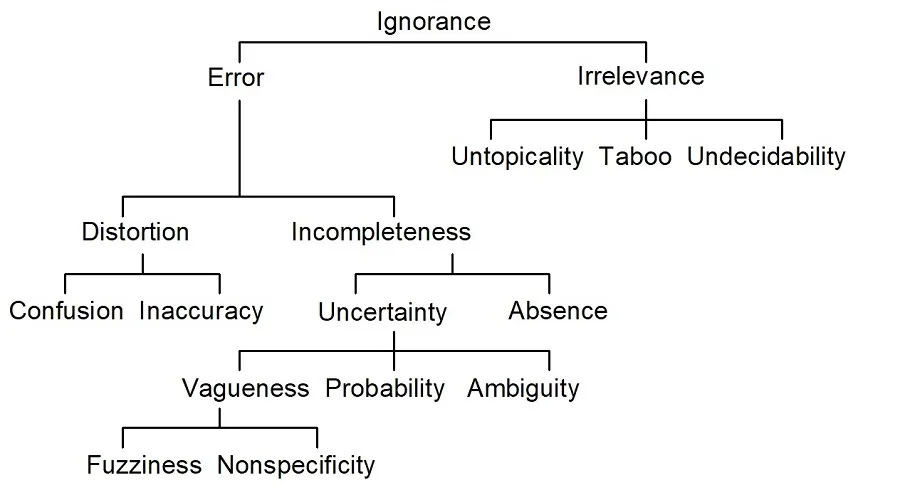Ignorance Management - Part 1: Taxonomy & Irrelevance
Rigidly defined areas of doubt and uncertainty
This was originally a talk that I have tidied up a bit.
I've been working in the knowledge management area for over twenty years. I want to talk about three interrelated but distinct concepts from the perspective of organizational effectiveness and those three things are knowledge, ignorance, and stupidity.
I'll start with some definitions but I want to keep those short and sharp then I want to talk about how organizations might manage each of these better with an emphasis on the last two. I'm going to end with some job ads.
So the first area is knowledge. Defining knowledge is a painful exercise. Many hours of my life have been wasted by someone in some meeting saying brightly and enthusiastically “Hi I think we need to begin this by asking what is knowledge”. Then a long and frustrating debate ensues that ultimately ends no where.
ISO have released ISO30401, the first international knowledge management standard and it says right in its definition section that there are diverse views on the scope covered within knowledge which is a polite way of saying that no one can agree on what it is but that we kind of have to start somewhere. Knowledge is described by philosophers as justified true belief but philosophers do not run knowledge management programs.
If you define knowledge by what corporate knowledge management programs manage then knowledge ends up being: intellectual property, documents, conversations, personal know-how and social capital. So from that list we've started with things that are quite clearly defined and may even have a legally defined existence all the way through to things that are a bit fuzzier but a bit but still important, harder to define but that still matter. The management of these things is necessary and people generally agree that it’s better to manage them well rather than poorly. However these things are not seen as worth spending much money or effort on when the budget cuts come. Knowledge management is pronounced “dead” at least once a year.
There are still a few knowledge managers out there. There are many more people working with knowledge who may not have that particular title but you do see roles called “knowledge manager” advertised online. You don't necessarily see “ignorance manager” roles advertised. And yet arguably ignorance is more important for organizations than knowledge. Ignorance is generally where the biggest risks for them are and also the biggest opportunities.
If defining knowledge is hard then defining ignorance is even harder still. Sometimes it seems to mean merely the absence of knowledge or as a wholly bad thing. The notion that you might seek to maintain or even create ignorance is alien to many.
Going back 20 years, Donald Rumsfeld popularized what many people have now called the Rumsfeld matrix.
The Rumsfeld Matrix starts to complicate the idea of ignorance. It implies at least 3 kinds of ignorance - in terms of our awareness as well as our knowledge. It also implies that each type of ignorance needs to be managed differently with the top right hand corner being particularly hard to manage.
Michael Smithson of ANU has an even more fine-grained taxonomy of ignorance:
Again each of these terms imply different management challenges:
Untopicality refers to things we feel we don’t need or want to know. This is how relevance is most commonly understood. Of course, the relevance of a particular piece of information is personal and contextual. Advice on how to escape from a bear may be highly valued in a zoo but less so in an accounting office. The increasing ease and decreasing cost of electronic communication and data storage means that people now have vast swamps of untopical information. Perhaps AI will process it all for us so we do not drown.
Taboo refers to matters that are forbidden to us. I would split this between explicit and implicit taboos. An explicit taboo might be military secrets, individuals’ salaries, things that are tagged as “out of bounds”. The implicit taboos are those that no one talks about - e.g. why that acquisition failed, unethical behaviour by senior execs. The former are managed by technology (access control). The latter by norms (looks and silences).
Undecidable matters cannot be determined to be true or false. These are paradoxes and logical contradictions. For most organizations, managers and staff contantly deal with paradoxes, dilemmas, and contradictions. For example, directly pursuing money can be less effective than pursuing something else. Perhaps the thing that ultimately eludes and torments managers is the future.
More to follow in Part 2.


